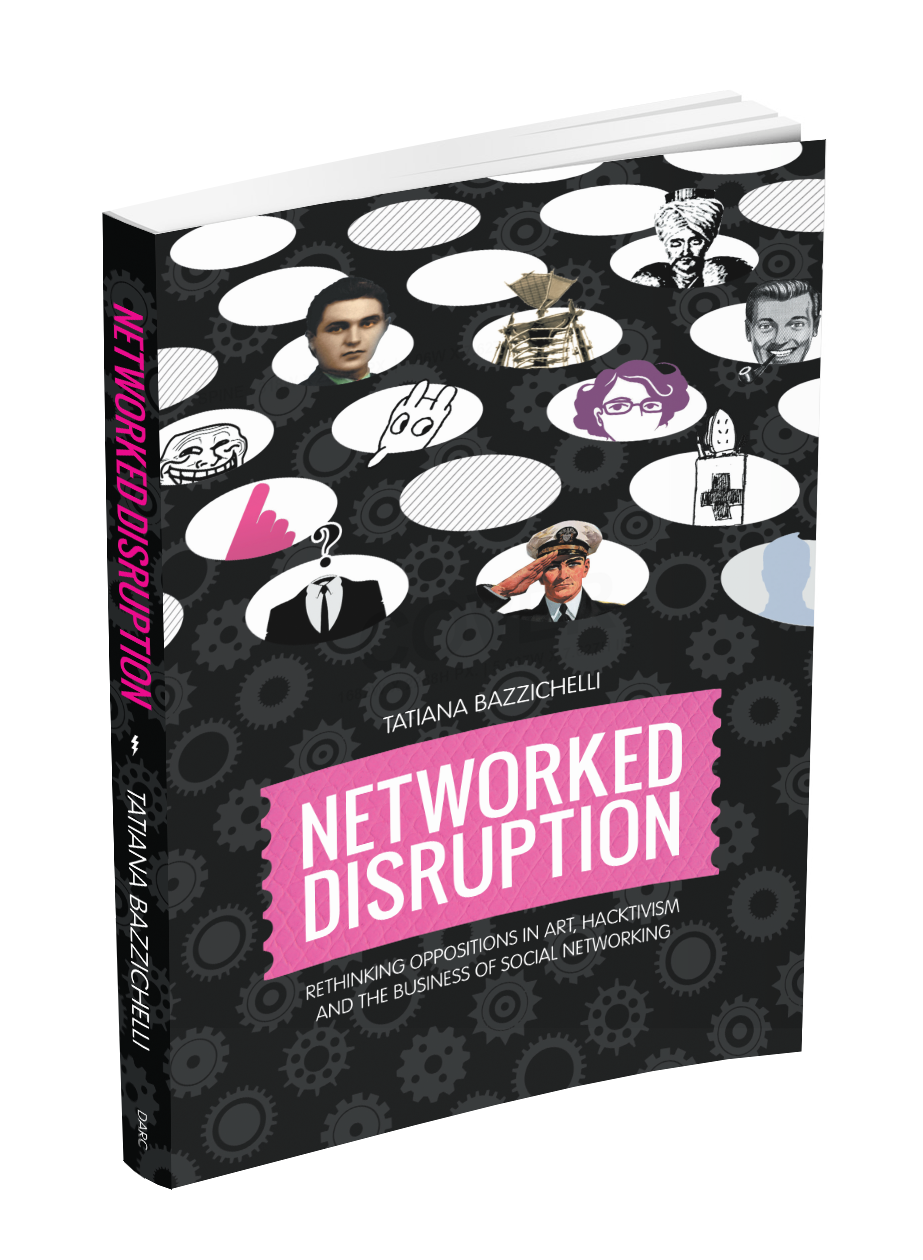Parmy Olson: We Are Anonymous: Inside the Hacker World of LulzSec, Anonymous, and the Global Cyber Insurgency (2012)
Filed under book | Tags: · anonymous, hacking, hacktivism, internet, internet culture, lulzsec, security, web

“A thrilling, exclusive expose of the hacker collectives Anonymous and LulzSec.
WE ARE ANONYMOUS is the first full account of how a loosely assembled group of hackers scattered across the globe formed a new kind of insurgency, seized headlines, and tortured the feds-and the ultimate betrayal that would eventually bring them down. Parmy Olson goes behind the headlines and into the world of Anonymous and LulzSec with unprecedented access, drawing upon hundreds of conversations with the hackers themselves, including exclusive interviews with all six core members of LulzSec.
In late 2010, thousands of hacktivists joined a mass digital assault on the websites of VISA, MasterCard, and PayPal to protest their treatment of WikiLeaks. Other targets were wide ranging-the websites of corporations from Sony Entertainment and Fox to the Vatican and the Church of Scientology were hacked, defaced, and embarrassed-and the message was that no one was safe. Thousands of user accounts from pornography websites were released, exposing government employees and military personnel.
Although some attacks were perpetrated by masses of users who were rallied on the message boards of 4Chan, many others were masterminded by a small, tight-knit group of hackers who formed a splinter group of Anonymous called LulzSec. The legend of Anonymous and LulzSec grew in the wake of each ambitious hack. But how were they penetrating intricate corporate security systems? Were they anarchists or activists? Teams or lone wolves? A cabal of skilled hackers or a disorganized bunch of kids?
WE ARE ANONYMOUS delves deep into the internet’s underbelly to tell the incredible full story of the global cyber insurgency movement, and its implications for the future of computer security.”
Publisher Little, Brown and Company, June 2012
ISBN 0316213535, 9780316213530
432 pages
via wao
interview with the author (Radio Free Europe/Radio Liberty)
interview with the author (Jesse Hicks, The Verge)
review (Quinn Norton, Wired)
review (Janet Maslin, The New York Times)
Peter Krapp: Noise Channels: Glitch and Error in Digital Culture (2011)
Filed under book | Tags: · digital culture, electronic music, error, gaming, glitch, hacktivism, hypertext, machinima, media history, noise, sound art, tactical media, video games

Brings to light the critical role of noise and error in the creative potential of digital culture.
To err is human; to err in digital culture is design. In the glitches, inefficiencies, and errors that ergonomics and usability engineering strive to surmount, Peter Krapp identifies creative reservoirs of computer-mediated interaction. Throughout new media cultures, he traces a resistance to the heritage of motion studies, ergonomics, and efficiency, showing how creativity is stirred within the networks of digital culture.
Noise Channels offers a fresh look at hypertext and tactical media, tunes into laptop music, and situates the emergent forms of computer gaming and machinima in media history. Krapp analyzes text, image, sound, virtual spaces, and gestures in noisy channels of computer-mediated communication that seek to embrace—rather than overcome—the limitations and misfires of computing. Equally at home with online literature, the visual tactics of hacktivism, the recuperation of glitches in sound art, electronica, and videogames, or machinima as an emerging media practice, he explores distinctions between noise and information, and how games pivot on errors at the human–computer interface.
Grounding the digital humanities in the conditions of possibility of computing culture, Krapp puts forth his insight on the critical role of information in the creative process.
Publisher University of Minnesota Press, 2011
Volume 37 van Electronic Mediations
ISBN 0816676240, 9780816676248
216 pages
Download (removed on 2012-6-30 upon request of the Digital Assets Coordinator of the University of Minnesota Press)
Tatiana Bazzichelli: Networked Disruption: Rethinking Oppositions in Art, Hacktivism and the Business of Social Networking (2011)
Filed under thesis | Tags: · art, hacktivism, mail art, neoism, networks, social media, tactical media, web, web 2.0

“The objective of this research is to rethink the meaning of critical and oppositional practices in art, hacktivism and the business of social networking. The aim is to analyse hacker and artistic practices through business instead of in opposition to it. By identifying the emerging contradictions within the current economical and political framework of Web 2.0, my aim is to reflect on the status of activist and hacker practices as well as those of artists in the new generation of social media (or so called Web 2.0 technologies), analysing the interferences between networking participation and disruptive business innovation.” (author)
PhD Dissertation
Department of Information and Media Studies, Aarhus University, December 2011
Supervisor: Søren Pold, Department of Information and Media Studies, Aarhus University
Co-supervisor: Fred Turner, Communication Department, Stanford University, California
Peer Production License
272 pages
PDF (4 MB, updated on 2016-2-17)
See also Networked Disruption exhibition catalogue, 2015.
Comment (0)
